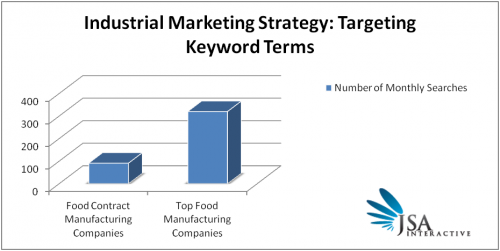Industrial marketing
In industrial marketing (including marketing of industrial goods ) is the marketing of production factors ( potential and Repetierfaktoren ), carried their sales not to consumers but to private or public organizations. Frequently nowadays is also spoken of B2B marketing.
Special
- The needs of organizations is derivatively, ie, it is derived from the demand of the organization from customers. The manufacturer of capital goods should not only consider the direct customer, but also the customers downstream stages.
- The multi- personality of organizations ( buying center ) is taken into account. The buying behavior of organizations differs essentially from the purchasing behavior of consumers.
- Compared to other goods, capital goods are more durable products. This results in longer -term relationships, contractual or constructive customer loyalty is extremely high ( supply of spare parts, maintenance contracts).
- Frequently used procedural rules to an objective and fair procurement behavior, as described in the tender procedure for the award of public contracts (VOL) are manifested.
- Consulting engineers are turned on by the buyer in all phases of the procurement process, for example, to create the inquiry documents to assess the provider's offerings and to monitor the execution of the order.
- Added to occur due to global integration Multiorganisationalität and internationality of the buying center, with the result that the origin of the purchase decision ends can not provide a coherent starting point for a targeted differentiated market.
- The services to be procured are often strongly in need of explanation ( for example, a chip factory ) and very customizable or customized.
- Moreover, high follow-up costs such as training, maintenance, energy consumption with capital goods decisions together so that each procurement decision is connected by a high commitment to the purchasing company. These are often the Total Cost of Ownership calculated in order to recognize the long -term cost implications of investment decision.
- Eventually, the market participants to name as a criterion of Industrial Marketing: These are, in contrast to consumer goods marketing, neither demand nor supply side anonymously.
- The participation of the public sector has to be mentioned that often the conditions of the procurement decision purports to capital goods, such as subsidies or infrastructure measures (eg construction of a feeder road for proposed plant ) or by regulations and laws.
- Already smaller manufacturers of capital goods are often forced to leave their goods to market globally, as in the immediate vicinity are only a few customers. This leads to relatively high distribution costs.
Basic types of capital goods markets
Implications for the marketing mix
Product Policy
In the field of product policy, the integration of the customer is important in the innovation management. Due to the lack of test markets new products can be tested only by pilot customers.
Pricing policy
Frequently in the procurement of industrial goods, a more or less formal invitation to the eligible suppliers ( Competitive Bidding ). A strategy on price discrimination or price change is therefore difficult.
Communication policy
The communication policy calls for an intense satisfying the information needs of individual members in the buying center. Direct marketing, trade shows and exhibitions are more important than media advertising. Also, the ingredient branding (brand name components ) more and more increasing in importance.
The Customer Relationship Management ( CRM) is of great importance, eg to customers through newsletters targeted to inform, invite them to fairs and generally to increase customer loyalty.
When communicating with prospects and customers, the different procurement situations ( Buyclass Framework) must be considered.
Distribution policy
Within the distribution policy, the focus is on high-quality capital goods in the direct sales, security of supply as well as the personal selling.
Many highly specialized suppliers of capital goods operate worldwide as there are few potential buyers in any country. In this respect cultural differences and country-specific regulations, for example in the field of work safety must be observed. The worldwide distribution is frequently performed with regional sales companies for the core markets abroad as well as with independent sales representatives for less important markets.
Trends
Since the products of the different manufacturers in many markets differ only slightly from each other, the accompanying services to differentiate from the competition is becoming increasingly important:
- Advice before buying
- Preparation of feasibility studies
- Planning services for the integration of the product into the production process of the customer
- Training and production optimization
- Maintenance contracts
- Supply of spare parts
- Teleservice










